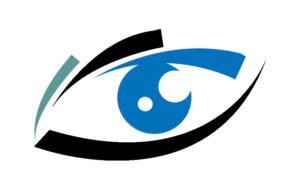Best Paediatric Ophthalmology Specialist In Thane
Pediatric ophthalmology is a specialization of ophthalmology that focuses on the eye, vision development and eye care for children.
What can you tell whether your child is suffering from Eye related issues?
It’s a bit of a challenge. Understanding your child’s issues with their eyes isn’t an easy job. You shouldn’t expect them to discuss the issues with their vision in the presence of a person. How do you determine what’s wrong? It’s as simple as becoming more mindful of the way your child behaves. Keep in mind your child’s movements like the following to identify their visual discomfort. Examine if your child has vision problems.
First, always rubbing your eyes
In the end, you’ll have an excessive light sensitivities to light
Also, having problems in focusing
The eyes are moving in a strange manner.
The eye is red
The eye is constantly swollen and watery.
Having issues seeing distant objects
Finding yourself puzzled when following objects
Inability to read the blackboard
With eyes crossed
Reading a book close to your eyes, etc.

What are some of the most frequent eye problems in children?
While identifying the issue within your child’s eyes isn’t easy for parents, a prompt diagnosis and treatment is able to cure the majority of issues. All you have to do is opt for a comprehensive treatment of paediatric eye diseases at the nearest eye clinic when it is the best date. Common child eye allergies include:
Vernal Keratoconjunctivitis: This occurs due to the change of season, smoke, dust, cosmetics etc. If your child’s eyes are affected by this disease, they will exhibit the following symptoms:
Eye itching
Red or pink eyes
Inflammation
Blurry vision
Sensitivity to light
Insufficiency of tear in the eye or around the eyes.
Atopic Keratoconjunctivitis: It comes with eczema or atopic dermatitis. This means that your child may exhibit the following symptoms of the condition:
Eye irritation that is burning
Vision cloudy
Eyes that are itchy
Too much watering
Thick mucus discharge etc.
Other eye diseases that are common to children are as follows:
Refractive errors due to an eye’s shape makes it hard for the eye to bend light in the right way
Strabismus (or Squint where both eyes are not aligned properly.
infantile cataractswhere the vision of your infant child gets unclear
Amblyopia in which one of the eyes of your child is suffering from low vision, but appears like normal
Retinoblastoma which is cancerous growths that are fatal in the eye could cause loss of vision, etc.

How can you prevent the development of your child's eye-related issues?
Prevention is always better than curing illness, and it is important to know this. Therefore, you must take care of your child’s eyes more carefully by following these steps:
The first step is to establish a routine to wear sunglasses or eyeglasses whenever your child is out. This will keep dust, mould or pollen from entering the eyes.
The second is to stop them from eye contact when there is something in the. The irritation can be worsened by rubbing.
As well, limit your child’s exposure to dust mites or pollen.
Also, establish a routine of washing your child’s eye by using cold water only, and not using hot water.
Keep a moderate humidity at home.
Also, make sure that you keep your home cleanand take care of the washing in absence of children.
